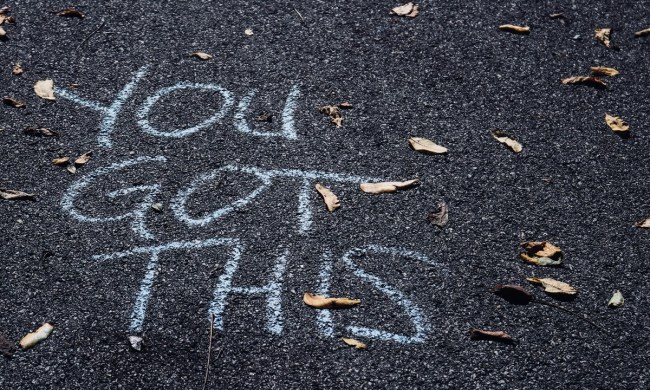For years, doctors have implored that a good night’s sleep is crucial for your overall health and wellbeing, but getting that good night’s sleep is easier said than done. While some tout the benefits of melatonin, there are ways, other than supplements, to calm your mind and rest easy.
Here are some of our five favorite exercises for getting to sleep sooner with a calm mind.
Traditional grounding
Grounding techniques are foundational methods for treating anxiety and restlessness. Grounding allows you to focus on the here and now and relax, instead of paying attention to a mind that’s racing with fear and stress.
An easy way to ground yourself is to pay attention to your five senses. As you lie in bed, name five things you can touch, four things you can see, three things you can hear, two things you can smell, and one thing you can taste.
Focusing on these senses can ground you in the minute details of the present, and help your brain relax rather than spin out of control.
The filing technique
If your brain feels particularly overwhelmed when you go to sleep, try the filing technique. You’ll need to activate your imagination for this process to really work.
Imagine a room. What’s it like? What color are the walls? Pull together as many details as possible. Now, imagine a table in that room. What kind of material is the table made from? Is there anything on it, or is it empty?
Mentally put a row of files on the table. You’ll need a file for everything currently causing your mind to feel overwhelmed and stressed. Take each stressor, examine it, tell yourself how you can or cannot address it, and then put it in the file, and put the file away.
This mental exercise can help you calm down, collect your thoughts, and focus on what matters at the moment — getting a good night’s rest, so you can effectively address those overwhelming problems in the coming days.
A sleep routine

Developing a sleep routine signals to your body and mind it’s time to chill and prep for bed. This can be something simple, like washing your face, reading for 10 minutes, and then turning out the lights, or something more complex, like a skincare routine, bubble bath, and a bit of yoga. All that matters is that it works for you. Regardless of what the actions are (as long they are actions that aren’t stressful), it is important to repeat them every evening if possible.
Simple breathing exercises
Channel your mindfulness and meditation skills and practice some simple breathing exercises while you lie in bed. There’s no need to get technical; just follow the 5-3-5 rule. Breathe in for five seconds, hold your breath for three, and then breathe out for five.
Make lists

This can also be a positive exercise; You don’t only need to focus on the overwhelming thoughts. You can also make a list of three or four things you’re grateful for that day. Look for the little small happy moments, like the delicious meal you had for dinner or the good feedback you received at work.
Still having trouble sleeping?
If you’re still having trouble sleeping and none of the above relaxation techniques help you fall asleep, you may want to talk to your doctor, mental health professional, or a sleep specialist. Don’t allow poor sleeping habits to run your life.
BlissMark provides information regarding health, wellness, and beauty. The information within this article is not intended to be medical advice. Before starting any diet or exercise routine, consult your physician. If you don’t have a primary care physician, the United States Health & Human Services department has a free online tool that can help you locate a clinic in your area. We are not medical professionals, have not verified or vetted any programs, and in no way intend our content to be anything more than informative and inspiring.


